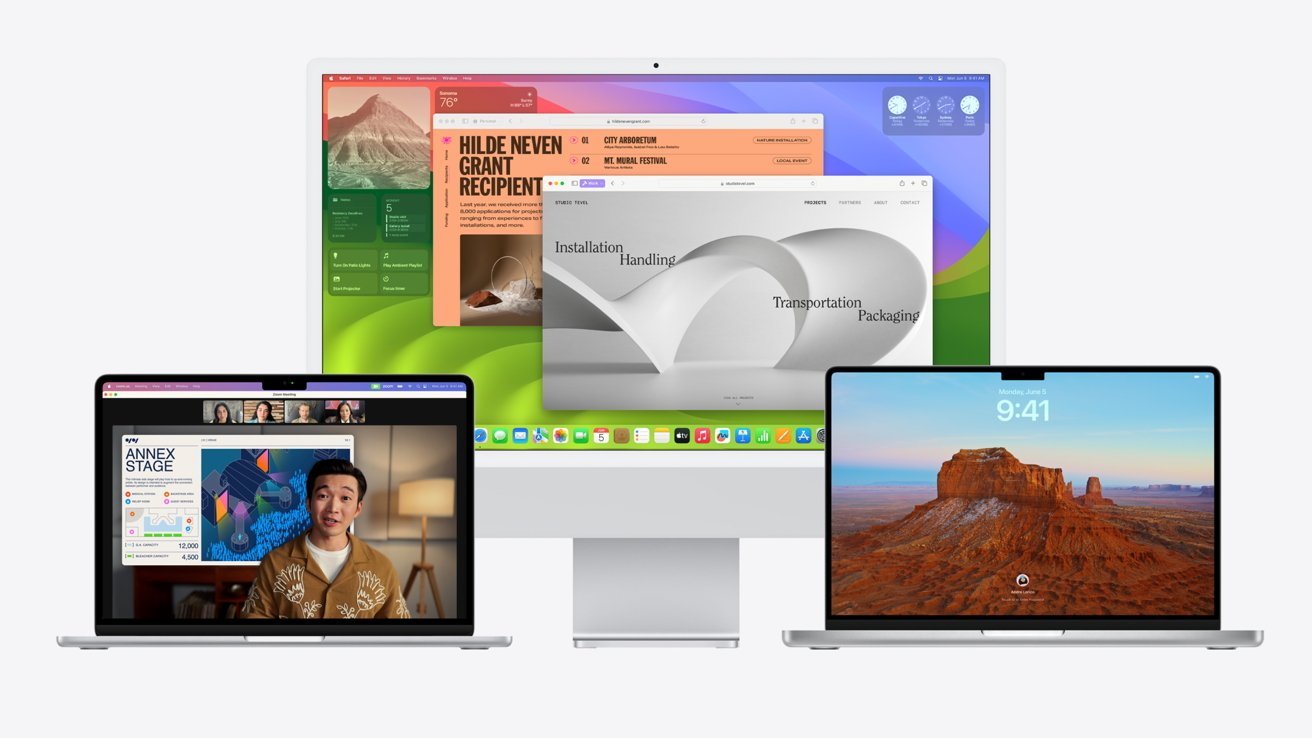So far, it looks like macOS Sonoma‘s rollout has not been plagued with widespread reports of app compatibility issues — but there are a few holdouts worth noting.
For instance, Apple’s own Configurator app is need of an update. This isn’t a major crisis for most users, but it is a problem for enterprise mobile management. Configurator is used by IT administrators in business and education to help mass-configure iPads and iPhones.
“On a Mac with macOS Sonoma installed, Apple Configurator will fail to add apps from the App Store to iPhones and iPads,” said Apple. The company recommends that customers continue to use macOS Ventura or earlier, and advised that “a future update” to Configurator and Sonoma would resolve the problem.
Frequent offenders Microsoft and Adobe seem to have their ducks in a row already, too.
Microsoft noted that Microsoft 365 supports Sonoma with the September 2023 update (16.77). The company recommends updating to the latest releases of Word, Excel, PowerPoint, Outlook and OneNote for best results. The company also noted that previous releases will soon require macOS Monterey or later, in case you’re running an older macOS version.
Adobe says that Lightroom Classic 12.5 or lower versions don’t show shadow watermarks in the correct direction. The company said it’s working on a fix but advises Lightroom Classic customers to stick with Ventura until then.
On the other hand, also-frequent offender Intuit is having issues.
Customers of Intuit’s QuickBooks Desktop for Mac software are still waiting for a fix for Sonoma compatibility. Company support reps acknowledge issues, but have thus far been unable to tell their users when an update will be forthcoming.
Running macOS is only part of the issue for many of us who rely on Virtual Machine (VM) software to run non-native apps, games and operating systems.
To that end, Parallels has released a major update to their virtual machine (VM) software to run Windows and other operating systems on the Mac. Parallels Desktop 19 “is optimized for macOS Sonoma,” according to the developer.
macOS Sonoma removes some of the Mac’s last vestiges of built-in PostScript support, which causes problems for earlier releases of Parallels Desktop, the developer noted.
“As a response, our engineers re-engineered the Shared Printing feature to use Internet Printing Protocol (IPP) which is the most popular printing method nowadays,” said Parallels.
CodeWeavers has announced the release of CrossOver 23.5, their compatibility layer software for the Mac and other systems. The new release adds a new “D3DMetal” option to run DirectX 11 and DirectX 12 games using both CrossOver and components from Apple’s Game Porting Toolkit.
“We are happy to report that this new D3DMetal option improves quality, compatibility, and performance for many games on Macs with the M1 chip or later, including Elden Ring, Hogwarts Legacy, Cyberpunk 2077, Armored Core VI Fires of Rubicon, Mortal Kombat 1, Deep Rock Galactic, Satisfactory, Monster Hunter Rise, God of War and Batman Arkham Knight. Note that Elden Ring and Armored Core VI Fires of Rubicon default to launching with Easy Anti-Cheat disabled,” said CodeWeavers.
Sonoma users interested in customizing their Mac’s menu bar should take note that Bartender, the popular Menu Bar reorganization tool, has been updated to version 5. Older versions are not optimized for Sonoma and some features are unavailable, according to the developer.
Look before you leap
We say variations on this every year, but it bears repeating that discretion is the better part of valor.
Before you upgrade to macOS Sonoma, it’s a good idea to check with the makers of the apps you depend on to make sure they’ll work with the new operating system. Make sure to hit the Mac App Store also, since many apps have been recently updated with Sonoma compatibility, and to expose new Sonoma-specific features.
Have you run into any show-stoppers with Sonoma and third-party apps? Let us know in the comments.





